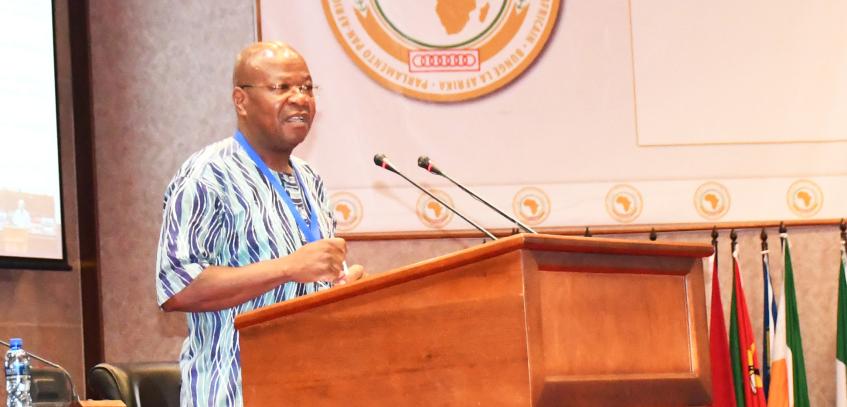The performance and progress assessment of the Agenda 2063 Special Project is set to get underway as the African Union (AU) and its organs, including the Pan African Parliament, seek to gauge tangible impacts made so far.
One of the key objectives of this initiative is to assess the performance of AU organs and propose areas for improvement.
Briefing members of the Pan-African Parliament (PAP) during the ongoing August Sittings of the Permanent Committees, Mr Tichawona Shumba, Director in the Office of Strategic Planning and Delivery at the African Union Commission said: ” The evaluation will specifically assess progress in terms of quality of implementation and delivery of tangible results along Agenda 2063 goals and targets. There will also be an assessment of the level of achievement or none achievement of the targets set at Member State, regional economic community and AU level."
The process will be consultative with clear rules and responsibilities for the Member States, regional economic communities, other AU organs and other Pan African institutions. Continental progress will also be measured at the aspiration level. The aspirations include aspiration One which prescribes a prosperous Africa based on inclusive growth and sustainable development. Aspiration Two speaks to an integrated continent, politically united and based on the ideals of Pan Africanism and a vision of the African Renaissance. In total there are seven aspirations for the continent.
"Critical success factors hinge on the early engagement of all stakeholders, private sector, academia, youth, women, civil society and the diaspora. The delivery of the Agenda 2063 Special Project calls for huge political, financial, human and technical resource outlays therefore necessitating the harnessing of expert resources from AU organs," said Mr Shumba.
The meeting agreed that the PAP had to play its legislative role to ensure the alignment of national development programmes and budgets to Agenda 2063. The PAP also has to play a monitoring and evaluation role to hold the executive accountable for implementing the framework.
Based on lessons learnt, areas for improvement will be made from 2024 to 2033.
-Ends-








